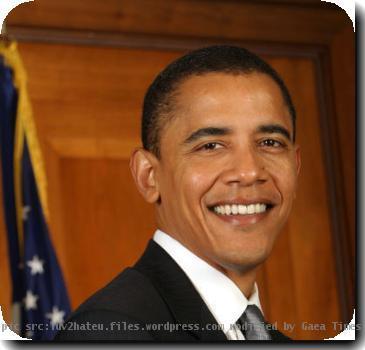Goodwin Liu nomination shows Asian-American gains in judicial and legal professions
By Jesse Washington, APFriday, May 14, 2010
Asian judge nominee shows community’s progress
When Wendy Chang told her parents she wanted to become a lawyer, they were not enthused.
“They wanted me to do the medicine thing,” said Chang, who immigrated to America from Taiwan with her parents as a child and is now a partner at a Los Angeles firm. “The sciences were an established way of succeeding. They were less familiar with how a lawyer could succeed.”
That cultural gap is one reason why there are few Asian-Americans in the legal profession, and why Chang was watching closely as Goodwin Liu cleared a hurdle in his nomination to become only the second Asian judge currently on the nation’s federal appeals courts.
Liu’s parents came to the United States from Taiwan, and he was born in Georgia. Now 39 and associate dean and professor at the University of California at Berkeley law school, he was nominated by President Barack Obama to the 9th U.S. Circuit Court of Appeals in San Francisco.
The Senate Judiciary Committee voted 12-7 along party lines Thursday to recommend Liu be confirmed. Unless Republicans filibuster, the full Senate will vote on Liu next, although it’s unclear when that will happen.
Asian-Americans are 5 percent of the U.S. population and 15 percent of the doctors, but about 3 percent of the lawyers. When it comes to lawyers becoming federal judges, which requires strong networks and political connections, Asian-American representation is even smaller.
Ten of 875 active federal judges, just over 1 percent, are Asian-American, according to the National Asian Pacific American Bar Association (NAPABA). On the appeals court level, which has outsized influence in shaping the nation’s laws, only one of 175 judges is Asian: Denny Chin, who was confirmed just last month.
If Liu is confirmed, he would join Chin and Harold Koh, former dean of Yale Law School and currently a State Department legal adviser, as potential candidates to be the first Asian judge on the Supreme Court.
Chang helped organize a gathering in Los Angeles to watch Liu’s confirmation hearings on television, and similar events were organized in Atlanta, Chicago, San Francisco and Houston.
“He’s a big deal simply because we only have one (appeals court) judge out of 175,” Chang said.
“There is a perception of fairness when the authority figure in a position of power is reflective of the community,” Chang said. “It helps people feel that the law and the power and how it is applied in this country is fair.”
Asians did not come to America in large numbers until a 1965 change in immigration laws, so they have had relatively little time to attain “pipeline” positions that lead to federal judgeships, such as federal prosecutor, partner in a large law firm, dean of a law school or tenured law professor.
Credentials are only one part of the equation. When it’s time to nominate a judge — a process usually driven by senators — a decision can be made before the vacancy is even announced, according to a November 2009 report from NAPAPA, which has been working to identify, connect and support Asian candidates.
“In earlier years there were most assuredly racial considerations” that kept Asians out, said Dr. Sheldon Goldman, author of “Picking Federal Judges” and a political science professor at the University of Massachusetts at Amherst.
“More recently, I would say it’s the lack of political networking, that Asian-Americans have more difficulty becoming more politically socialized and mobilized so that they would become a political force,” Goldman said.
There also are cultural differences. John Tran, born in Vietnam and now a partner at a Virginia firm, said many Asians value patience, quietness, deference, humility and listening — which are not qualities usually associated with lawyers.
Tran also contrasted the Western emphasis on the individual with the high value placed by many Asians on family, ancestral and community relationships. So while an American concept of justice might be to delineate rights beforehand and refer to that agreement in case of conflict, an Eastern perspective might be, “Let’s get together and figure out what’s best for both of us,” Tran said.
But he did not see those traits as a barrier for Asians in the law: “To be effective, you have to learn how to take your habits and strengths and apply them differently.”
Early in Tran’s career, he would tell prospective clients to meet him in the Fairfax County courthouse cafeteria. “I’ll be the Asian person there,” he would say.
That doesn’t work any more. “There is a growing number of younger Asian lawyers,” he said. “If they recall their cultural roots and the strengths they can gain from those roots, I believe the legal profession will become better for it.”
Asian-Americans constituted 8.1 percent of law school students in the fall of 2009, up from 7 percent in the fall of 2000, according to the Law School Admissions Council. And Obama has accelerated the pace of Asian nominations to the federal bench. George W. Bush placed four Asians on the bench and Bill Clinton five; Obama has nominated eight so far, including Liu.
Republicans have strongly opposed Liu’s nomination, calling him a liberal activist who would rewrite the Constitution — possibly from the Supreme Court.
The fierce opposition is actually exciting, said Karen Narasaki, president of the Asian American Justice Center.
“Wow, people are afraid he might get on the Supreme Court! That’s a new problem,” she said. “It’s a breakthrough, in a way.”
Jesse Washington covers race and ethnicity for The Associated Press. He is reachable at jwashington(at)ap.org or www.twitter.com/jessewashington.
Tags: Barack Obama, Bill Clinton, California, Higher Education, Judicial Appointments And Nominations, Law Schools, Los Angeles, North America, San Francisco, United States



